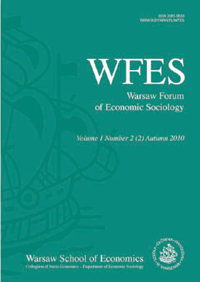Three Decades of European Works Councils: A Quantitative Evaluation
Three Decades of European Works Councils: A Quantitative Evaluation
Author(s): Holm-Detlev Köhler, Sergio Gonzalez Begega, Mona AraneaSubject(s): Politics / Political Sciences, Sociology, Socio-Economic Research
Published by: Szkoła Główna Handlowa w Warszawie
Keywords: European Works Councils (EWCs); European industrial relations; Transnational companies; Information and consultation rights; Employment participation
Summary/Abstract: European Works Councils (EWCs) constitute the most developed arena of social dialogue in the EUs multi-level system of employment relations. In this paper we give an overview over the quantitative trajectory of these representation bodies and evaluate the potential for their future development. Based on the historical development of the legal framework since the 1980s we establish a four phase periodization with different motives and dynamics in the creation of EWCs. Using the European Trade Union Institute (ETUI) database on EWCs we look at several company characteristics that might have an effect on EWC creation such as country of origin, company size and degree of internationalisation. Our findings confirm a strong relationship between the development of the European legal framework and EWC creation dynamics. We argue that the current voluntaristic soft law approach without clear binding obligations for the companies covered by the EWC Directive is one of the main factors to explain the currently very low EWC creation rate in a context of growing internationalisation of firms and industries.
Journal: Warsaw Forum of Economic Sociology
- Issue Year: 6/2015
- Issue No: 1 (11)
- Page Range: 49-74
- Page Count: 26
- Language: English

